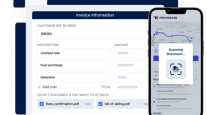Best Truck Dispatch Software for 2024

For growing carriers, having efficient truck dispatch software is essential for managing fleets, optimizing operations, and winning more high-paying loads (especially for dedicated lanes). Depending on your size, growth trajectory, and focus, you will want to carefully vet the right provider for you – not all software is created equal, and different providers have different strengths. In this article, we will explore trucking software feature sets, target customers, and overall performance.
Truckbase: Intuitive and modern cloud-based software for the 10-100 truck fleet
Truckbase (www.truckbase.com) stands out as an intuitive and easy-to-use dispatch software designed for both dispatchers and drivers. Ideal for asset-based carriers with 10-100 drivers, Truckbase offers a more professional and reliable system, built with modern tech that will impress brokers. Truckbase makes the most sense once you have multiple users in the system who need to collaborate, such as having at least one dispatcher and an office manager.
Truckbase’s software revolves around three core feature sets: dispatching, invoicing, and settlements. It is mobile-friendly, decreases data entry with AI, and is extremely easy to use. Their intuitive driver-friendly dispatch is where they stand out, which makes them a great fit for fleets focused on usability for drivers.
Unlike more enterprise software options, their software requires very little training. However, with new pro features such as live vehicle tracking, EDI & ELD integrations, and customer portals, Truckbase can help small carriers win more loads and contracts with shippers and brokers who require such capabilities.
Additionally, as a nimble and rapidly growing player built on modern technology, their team prides themselves on highly responsive customer support. Their customer-centric development process results in fast updates and improvements that set them apart from legacy players who move at a slower pace. For the growing small-to-mid size fleet, Truckbase is your answer.
In the spirit of “good decisions from good alternatives,” here are some other types of trucking dispatch software you may want to evaluate to ensure you make the optimal choice for your fleet.
The tried-and-true legacy players for the largest carriers
There are several trucking dispatch software providers that date back nearly thirty years, to the nascent days of software adoption. These solutions tend to be the most robust TMS options on the market. Name a feature, and they probably have it. Their highly customizable nature allows fleets to tailor the software to their specific needs.
However, extensive customization comes with a cost – a far longer and more involved implementation process, with correspondingly high prices. These solutions are best suited for larger fleets with 500+ trucks that are prepared to treat their software selection process as a real investment. While their software may feel slightly dated, it remains a top choice for mega carriers due to its comprehensive feature set and high level of customization.
Low-cost, basic solutions for owner operators
There are several other players that cater to owner operators and small fleets with 1-5 trucks. These more affordable options come with limited functionality, making it suitable for record keeping at home but less ideal for dispatch because it lacks driver functionality.
The software is best for a single user, such as one owner who manages both dispatching and accounting, as collaboration features are limited. As you evaluate them, consider your specific needs, as they will tend to have different strengths. For example, some are best suited for owner operators that only work with a handful of brokers or shippers and do not require any load board integrations.
Last, if users are willing to invest the time in weekly data entry, it offers good detailed cost tracking and reporting capabilities.
If you have a brokerage arm, be sure to evaluate which of these lower cost trucking dispatch software options include modules specifically designed for brokerages.
Keep in mind that fleets looking to grow or those requiring more advanced collaboration features like driver apps, live tracking, or mobile scanning may find themselves wanting with the free, low-cost solutions. Many of these as well require extensive manual data entry, which is a major disadvantage over the more modern trucking dispatch options like Truckbase, which leverages AI to dramatically reduce manual data entry and workloads for trucking dispatchers.
Lastly, many of the lower cost options are equally as dated as the mega carrier software on the market, thus making them prone to more down time, sluggishness, and unintuitive designs.
Spreadsheets: The free and homemade option
For those just getting started or with limited budgets, basic spreadsheets – either desktop or cloud-based – can serve as a basic dispatch solution. As a free option, this approach is best suited for tech-savvy users who can build custom TMS functionality within the spreadsheet framework. This may include leveraging macros, or at least a cleanly formatted, well organized, and regularly updated sheet that serves as your single source of truth for trucking dispatch.
Of course, these spreadsheet-based options have limitations in terms of collaboration and will lack the advanced features offered by dedicated dispatch software providers. Many trucking companies that eventually turn to more modern TMSes like Truckbase will have started on spreadsheets until they outgrow that solution. Typically, once you get to more than a single user in the spreadsheet and have at least 10 drivers to coordinate loads with, you’ll want to evaluate a cloud-based trucking dispatch software solution.
Conclusion
The right dispatch software can significantly impact a trucking operation's efficiency and growth. Whether it's Truckbase for growing, tech-forward small to mid-sized fleets, a customizable solution for large fleets, or more budget-friendly options for owner-operators and small operations, the market offers a range of software to suit diverse needs. Evaluate your fleet size, operational needs, and growth plans to select the most appropriate dispatch software for your trucking business this year.
FAQs for Evaluating Truck Dispatch Software
What key features should I look for in a truck dispatch software?
Look for a user-friendly interface, efficient dispatch management, invoicing and settlement features, mobile compatibility, and AI-driven data entry reduction. For example, Truckbase offers an intuitive design, easy dispatching, and AI-enhanced features, making it ideal for small to mid-sized fleets.
How important is mobile-friendliness in dispatch software?
Mobile-friendliness is crucial for on-the-go access to dispatch information and load documents. Software like Truckbase is designed to be driver-friendly and mobile-compatible, enabling efficient operations even when away from the office.
Can dispatch software integrate with other systems like ELDs or EDI?
Yes, integration capabilities are essential for streamlined operations. Truckbase, for instance, offers integrations with ELDs and EDI, facilitating live vehicle tracking and seamless data transfer.
What type of customer support can I expect from a dispatch software provider?
Expect responsive and customer-focused support. Providers like Truckbase are known for their agile customer service and development approach, ensuring that users receive timely assistance and software updates.
How does the right dispatch software impact driver satisfaction and retention?
Effective dispatch software enhances driver experience by simplifying task management and communication. Truckbase, for example, focuses on driver-friendly dispatch systems, which can significantly improve driver satisfaction and retention.
What scalability options should I consider in dispatch software?
Consider software that can grow with your fleet. Cloud-based platforms like Truckbase are suitable for small to mid-sized fleets and come with features that support growth, such as advanced load booking and contract management tools.
Why should trucking dispatch software be cloud-based?
A modern cloud-based trucking dispatch tool ensures you are always on the most up-to-date technology. Moreover, feature development can be exponentially faster, thus these modern cloud-based providers like Truckbase can roll out new functionality on a monthly cadence, instead of every one or two years. When your software provider can be more responsive to your feature requests and feedback, the software grows and evolves with your needs.
The above article is sponsor-generated content. To learn more about sponsor-generated content, click here.




